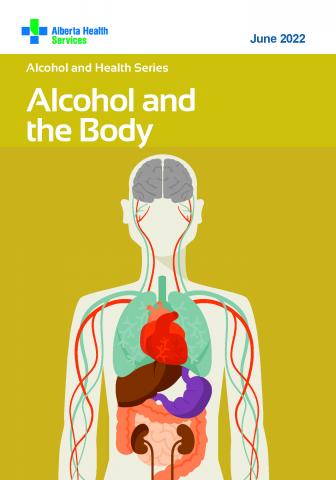Moderation starts with self-awareness. Our DrinkSense Calculator is a great a starting place for women to assess their drinking. Exceeding the recommended amounts can potentially lead to a wide range of short and long-term health and social problems, including alcohol dependence. For men, it is important to include non-drinking days during the week to avoid habitual drinking. It is also important not to drink with your spouse when looking to start a family as alcohol during pregnancy can cause lifelong damage to a baby (fetus).
Facts about men and alcohol:
- Men consistently have higher rates of alcohol-related deaths and hospitalizations than women
- Among drivers in fatal motor-vehicle traffic crashes, men are almost twice as likely as women to have been impaired/intoxicated
- Excessive alcohol consumption increases aggression and, as a result, can increase the risk of physically assaulting another person
- Men are more likely than women to complete suicide, and more likely to have been drinking prior to completing suicide
- Excessive alcohol use can interfere with testicular function and male hormone production resulting in impotence and infertility
- Alcohol consumption increases the risk of cancer of the mouth, throat, esophagus, liver, and colon in men
"What long-term effects does heavy drinking cause?"
Long-term effects include liver, heart, and brain damage. Heavy drinking can also cause decreased appetite, vitamin deficiencies, stomach problems, skin problems, problems with sex and memory loss.
There are different levels of drinking:
- Drinking because you enjoy a particular alcoholic beverage
- Drinking to loosen up in a social situation
- Drinking to get a small buzz after a busy day
- Drinking to get a little drunk
- Drinking to get a lot drunk
- Drinking to become a blackout drunk
Sometimes when you think of "drinking", your mind goes to the worst case scenario and you think of that intoxicated, loud, no-boundaries person, or the guy who wants to fight, or those who drink until they get sick. There are very dramatic differences to how far a person will take their drinking. Moderate drinking usually remains quite social, but as more alcohol goes down, more problems can often come up...
The consequences of getting drunk can be as simple as embarrassment to as serious as death and lifelong injury. It can also affect our work:
- Absences - There is ample evidence that people that drink too much are on sick leave more frequently than other employees, with a significant cost to employees and employers.
- Work accidents - Up to 25% of workplace accidents and around 60% of fatal accidents at work may be linked to alcohol. In some countries, up to 40% of work accidents have been attributed to alcohol use.
- Productivity - Co-workers perceive that heavy drinkers have lower performance, problems in personal relationships and lack of self-direction, though drinkers themselves do not necessarily perceive effects on their work performance.
